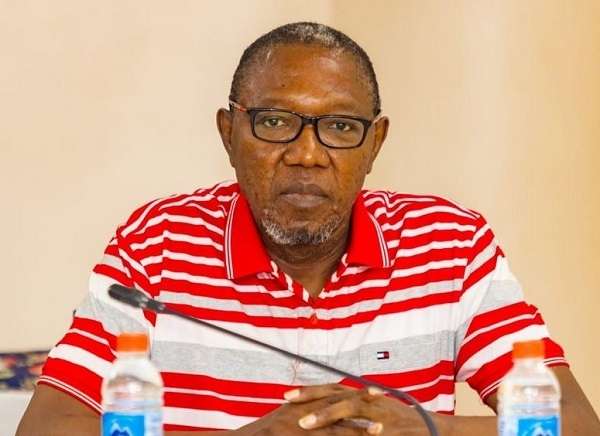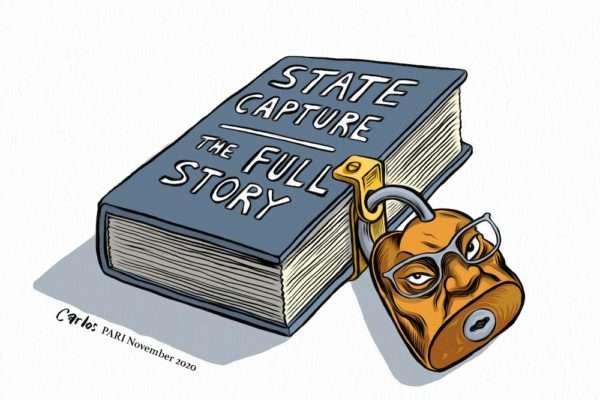State capture, a phenomenon where private interests manipulate and control the state for personal gain, poses significant threats to democracy, governance, and development.
Dealing with state capture requires a comprehensive approach that addresses its root causes, and effects, and promotes transparency, accountability, and good governance.
Primarily, strengthening institutions is crucial. Independent, effective, and accountable institutions like the judiciary, media, and anti-corruption agencies can prevent and investigate state capture.
As such, ensuring the autonomy and capacity of these institutions is vital.
Likewise, promoting transparency is essential. Implementing measures like freedom of information laws, asset disclosure, and open contracting can increase transparency and prevent corrupt practices.
Transparency allows citizens to hold leaders accountable and makes it difficult for private interests to manipulate the state.
Accordingly, Hon. Clement Apaak, MP for Builsa South, has praised the power of free speech and access to information, crediting them with protecting Ghana from falling victim to state capture and ensuring accountability.
Hon. Apaak affirmed that the whistleblower who released the Agyapadie document, allegedly exposing the President’s attempts to capture state properties, has performed a great service to the nation.
He expressed outrage that President Akufo-Addo and his family seem to think they can deceive Ghanaians easily, implying that they consider them foolish and naive.
“A vote for DMB is a vote for NADAA and his clan because they orchestrated his emergence as the NPP Flagbearer, believing and knowing, that he would protect and ensure the continuation of the ongoing state capture after NADAA exits as President”.
“Guess what? The Agyapadie document hinted at a northern candidate within the NPP to succeed NADAA to ensure the continuation of the scheme”.
Hon. Clement Apaak
Hon. Apaak wondered how the Agyapadie document, which outlines a plan to capture the state, could be dismissed as fabricated when its contents are being implemented and realized in plain sight, for all to see.
He forcefully argued that the eerie alignment between the country’s current situation and the Agyapadie document’s revelations cannot be dismissed as mere coincidence.
Empowering Citizens, Preventing State Capture
Furthermore, encouraging civic engagement is critical as civil society, activism, and citizen participation in governance can hold leaders accountable and prevent state capture.
Empowering citizens to demand accountability and transparency is vital.

As such, Hon. Clement Apaak issued a clarion call to all who have not yet perused the Agyapadie document, urging them to read it and acquaint themselves with its revelatory contents.
“We must rescue Ghana and, by doing so, put an end to the grand scheme by one clan to appropriate our state and its resources for themselves, their offspring, and their future generations as meticulously outlined in the Agyapadie blueprint”.
Hon. Clement Apaak
He emphasized that to effectively combat the administration’s attempts to capture the state, Ghanaians must remain vigilant, well-informed, and proactive in holding their government and leaders accountable for their actions.
Hon. Apaak encouraged citizens to reject state capture by voting for John Dramani Mahama and the NDC, emphasizing that this is the surest way to restore accountability and transparency in government.
He called on all Ghanaians to come together in a collective effort to reclaim and revitalize their nation, stressing that Ghana’s future prosperity depends on a united approach, as the country’s success belongs to every citizen.
Moreover, addressing the effects of state capture is crucial. Implementing economic reforms to stimulate growth, reduce inequality, and promote competition can address economic distortions caused by state capture.
Social programs can address poverty, inequality, and social injustice. Rebuilding trust in institutions, leaders, and the democratic process is essential.
Addressing state capture necessitates a comprehensive strategy that encompasses anti-corruption initiatives and efforts to mitigate its effects, ultimately fostering democratic governance and development.





















